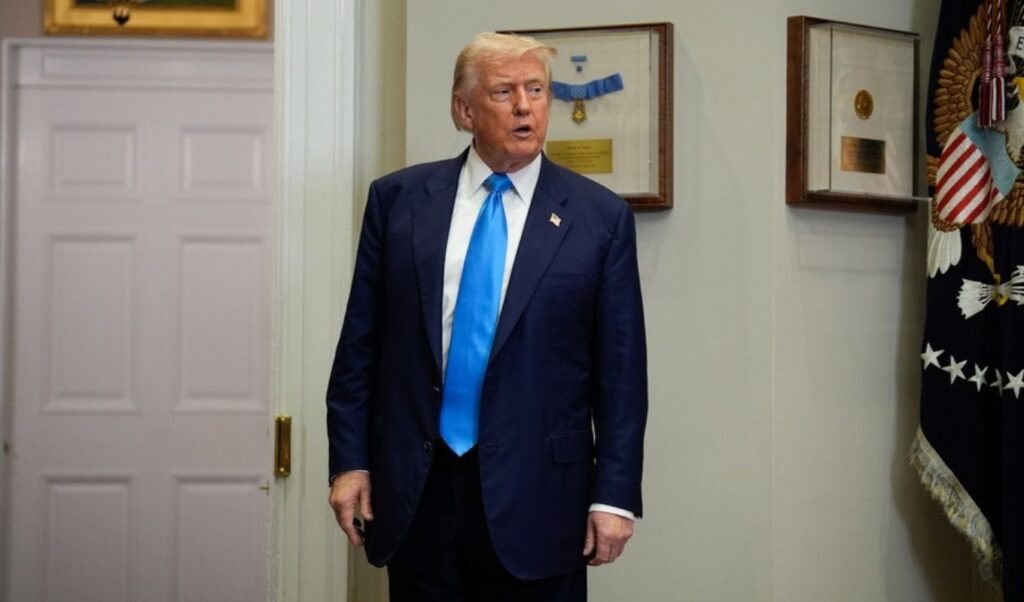United States President Donald Trump signed an executive order yesterday, Thursday, imposing increased customs tariffs on products from dozens of countries worldwide. According to the White House, the measure aims to “rebuild global trade for the benefit of American workers.”
Although initially announced that the new tariffs would take effect on August 1st, a government official clarified that they will ultimately be implemented from August 7th.
Countries that managed to sign trade agreements before the deadline are subject to already agreed-upon tariffs. For example, products from the European Union, Japan, and South Korea will be subject to 15% tariffs, while Britain’s products face 10%. The agreements signed so far have been the result of negotiations with fairly vague terms. More details are expected to be made public through new official documents.
Tariffs: The Trump administration appears extremely “tough” toward certain specific countries
For countries that failed to reach agreements with the American government, tariffs will range from 10% -considered the minimum level- up to 41%, with Syria receiving the highest rate.
Generally, most countries listed in the appendix of President Trump’s executive order are subject to 15% tariffs, but some countries face double or higher rates, particularly South Africa (30%), Serbia (35%), and Switzerland (39%).
The dramatic increase in customs tariffs is causing global concern for companies that have the US as their main export destination.
At least one country escaped the tariff increase on August 7th. Donald Trump announced yesterday that he is extending for 90 days the validity of tariffs imposed on Mexico, maintaining them at 25% for products imported into the American market outside the North American Free Trade Agreement framework (USMCA, formerly NAFTA).
In contrast, Canada will see tariffs on its products exported to the US outside this agreement framework increase from 25% to 35%.
“Canada has not cooperated to reduce the flow of fentanyl and other illegal drugs” to American territory, the White House justified in a separate document, while it “took retaliatory measures against the US.”
The Trump administration appears extremely tough toward certain specific countries. Donald Trump thus signed an order on Wednesday providing for 50% tariffs on most products imported from Brazil, with the exception of certain goods. These additional tariffs were imposed as retaliation for the trial of far-right former president Jair Bolsonaro -an ally and great admirer of Donald Trump- for attempted coup following his defeat in the 2022 elections.
India will see its products subject to 25% tariffs, a level to which additional “penalties” are expected to be added because Washington accuses it of buying Russian oil.
President Trump touts the benefits of closed deals and tariffs, which will bring revenue to the American public treasury, whose debt is enormous.
However, the impact of customs tariffs continues to worry economists, who predict they will further increase inflation, which rose to 2.6% in June, and will harm the growth of the world’s largest economy.
Apple predicted that customs tariffs are expected to increase its costs by 1.1 billion euros in the current quarter.
Coincidentally, a federal appeals court began examining yesterday in Washington an appeal concerning whether President Trump exceeded his constitutional powers by imposing additional tariffs without Congressional approval. The appeal concerns universal tariffs, meaning those not targeting a specific sector, such as automotive or steel industries.
An attorney for the plaintiffs, an alliance of small businesses and twelve American states, explained that they accuse the president of “appropriating” Congressional powers, something “unprecedented by any president in the last 200 years,” while the majority of judges view government arguments with skepticism.
The White House has already made clear that, in case of an unfavorable verdict, it will appeal to the federal Supreme Court.




